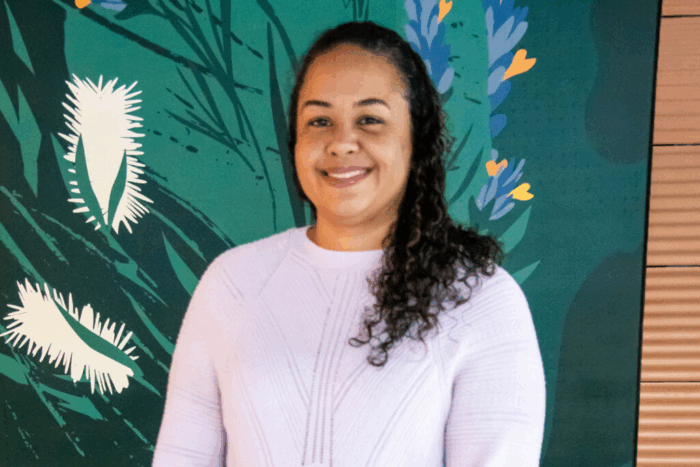
As the director of Proyecto Mamá, a Milwaukee-based research project assessing the mental health needs of perinatal Latina mothers, Dr. Lisa Edwards often worked with moms who are Mexican immigrants. In the perinatal period, the months before or after giving birth, when it is natural to feel stressed, these mothers frequently had additional factors compounding their strain: fears of losing their public health insurance soon after delivery, for example, or of being deported.
Whether the mothers were newly arrived or longer settled, these challenges made the availability of mental health services and resources even more important. They also made signs of resilience in the mothers “incredibly inspiring and motivating,” says Edwards, professor of counselor education and counseling psychology.
As that research concluded, Edwards found herself wondering about a place she’d visited many times, her mother’s home country of Colombia. Edwards had long dreamed of teaching and conducting research there, with her husband and two children joining her to experience Colombian life. A successful application for a Fulbright U.S. Scholar award in 2021 made that dream possible, though COVID-19-related travel concerns delayed their trip to early 2022.
In Medellin, Edwards will study recently arrived pregnant and postpartum mothers from a vulnerable population, refugees from neighboring Venezuela where a humanitarian crisis makes daily life a fight for survival. With colleagues at Universidad CES in Medellin, she will conduct in-depth interviews and focus groups with mothers and health providers who work with them. This qualitative data will allow for a better understanding of the mothers’ mental health concerns and their options for tending to them.
Edwards’ Fulbright project will complement her research in Milwaukee — and present her with some interesting new dimensions. Colombia generally welcomes migrants from Venezuela and provides for the mothers’ medical care, conditions immigrant moms in the U.S. can’t always depend on. But in both countries, mental health concerns for mothers are secondary.
In her research, Edwards and her team have observed that exposure to trauma — early in life or more recently — is a critical part of the context affecting pregnant and postpartum mothers, a legacy affecting how they respond physically, mentally and emotionally to new stressors. And many of the refugee mothers Edwards encounters in Colombia will likely have experienced significant trauma themselves. “There are just so many factors,” she says. “Many of the mothers have had little or no health care in their home country. They arrive with pre-existing concerns and issues. There could also be the experience of migration and the way people are exploited during that experience. Part of why we’re doing this is to understand that context and the potential value of a sensitive or trauma-informed care perspective.”
In her research, Edwards will focus as much on the personal and cultural resources that help the mothers recover and persevere as on the struggles that weigh them down.“Unfortunately, until recently, psychology only really focused on the cycle of pathology and the problems and concerns,” Edwards says. “So, it would be missing an entire part of the picture not to explore the resiliency these moms have.”



